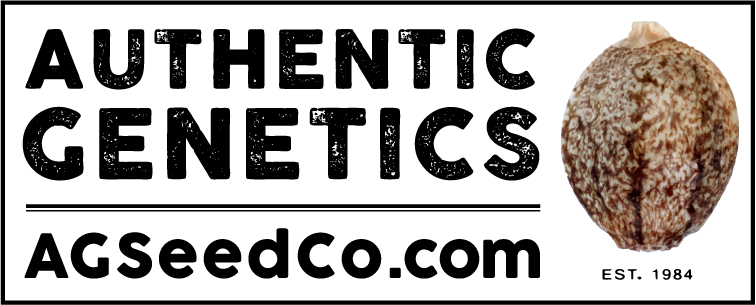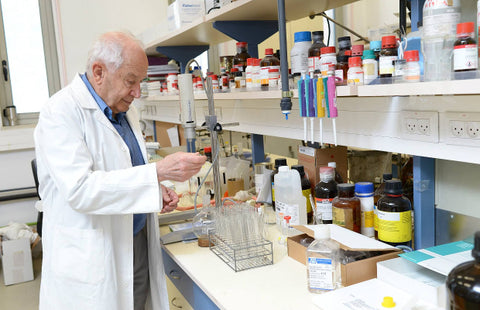
Dr. Raphael Mechoulam was a world-renowned Israeli scientist who made significant contributions to the field of cannabis research. He passed away on March 9th, 2023, at the age of 92. His groundbreaking discoveries and advocacy for the legalization of medical marijuana have left an indelible mark on the scientific community and society as a whole.
Early Life and Education
Raphael Mechoulam was born in Sofia, Bulgaria in 1930. In 1949, his family immigrated to Israel, where he began studying chemistry at the Hebrew University of Jerusalem. He earned his Ph.D. in organic chemistry in 1958, after which he completed his post-doctoral research at the Rockefeller Institute in New York.
Cannabis Research
Dr. Mechoulam's interest in cannabis research began in the early 1960s when he obtained a sample of hashish from the Israeli police. He became intrigued by the plant's psychoactive effects and began to study its chemical composition. In 1964, he and his team were able to isolate and identify the active ingredient in cannabis, tetrahydrocannabinol (THC).
This discovery was a turning point for cannabis research, as it opened the door for further investigation into the plant's therapeutic potential. Dr. Mechoulam continued to study the plant and its compounds, synthesizing other cannabinoids such as cannabidiol (CBD) and tetrahydrocannabivarin (THCV). He also found that the human body produces its own cannabinoids, which he named anandamide and 2-arachidonoylglycerol (2-AG).
A Bit of Cannabinoid History
“In 1840, Schlesinger was apparently the first investigator to obtain an active extract from the leaves and flowers of hemp. A few years later, Decourtive described the preparation of an ethanol extract that on evaporation of the solvent gave a dark resin, which he named “cannabin.”” From: Cannabinoids in health and disease - Natalya M. Kogan, MSc
In the early 1940s, a researcher named Roger Adams identified and synthesized cannabidiol, (CBD) and cannabinol (CBN). Then in 1942, tetrahydrocannabinol (THC), was extracted by Wollner, Matcheett, Levine and Loewe.
While Raphael Mechoulam is a hero to cannabis research, he often mistakenly credited with the discovery of these compounds, more appropriately he should be credited with elucidating the effects of CBD and THC by isolating them from cannabis which he did in 1963 with CBD, and in 1964 with THC, and then synthesizing both compounds in 1965.
In 1988 the first receptors for THC were found in a rat’s brain. Then in 1990, science confirmed there was an abundance of what we now call the CB1 receptors, which are found mostly in our brain and spinal cord, and then in 1993, we found the CB2 receptors, which are located throughout our bodies, primarily on immune cells.
Once the first cannabinoid receptor was discovered, scientists set out to discover if these CB1 and CB2 receptors were just the targets of phytocannabinoids (cannabinoids made by plants), or if we could be making similar compounds that fit these newly found receptors naturally.
In 1992, scientists found an endogenous compound within us that activated the CB1, and later we learned that it also activates our CB2 receptors, and it was named ”Anandamide”. “Ananda” being the Sanskrit word for bliss, joy or happiness, and “Amide”, which is an organic compound. Scientists describe Anandamide as being the bliss molecule which we all create within us.
These discoveries brought scientists to the realization that we have within us all, a very active and very important, EndoCannabinoid System or E.C.S..
Dr. Mechoulam's research has had a significant impact on the medical community's understanding of cannabis and its potential uses. His work has shown that cannabinoids have anti-inflammatory, analgesic, and anti-tumor properties, and may be effective in treating a wide range of medical conditions such as epilepsy, multiple sclerosis, and cancer.
Honors and Awards
Dr. Mechoulam's contributions to the field of cannabis research have been widely recognized. He received numerous honors and awards throughout his career, including the Rothschild Prize in Chemical Sciences and Physical Sciences in 2012, the Israel Prize in Exact Sciences in 2000, and the Heinrich Wieland Prize in 2004.
In addition to his research, Dr. Mechoulam was also an advocate for the legalization of medical marijuana. He spoke out about the need for more research into the plant's medical properties and called for the removal of legal barriers that prevent scientists from studying it.
Legacy
Dr. Raphael Mechoulam's contributions to the field of cannabis research have left a lasting impact on the scientific community and society as a whole. His discoveries and advocacy have played a significant role in the legalization of medical marijuana in many countries around the world. His work will continue to inspire researchers and medical professionals in their efforts to develop new treatments and therapies for a wide range of medical conditions.
In conclusion, Dr. Raphael Mechoulam was a brilliant scientist and advocate who dedicated his life to understanding the medicinal properties of cannabis. His work has had a profound impact on the scientific community and society as a whole, and his legacy will continue to inspire future generations of researchers and medical professionals. He will be deeply missed but his work will never be forgotten.
Please be sure to check out this wonderful documentary about his life and accomplishments:
“The Scientist” is a documentary that traces the story of Dr Mechoulam from his early days......as a child of the Holocaust in Bulgaria, through his immigration to Israel, and his career as the chief investigator into the chemistry and biology of the world’s most misunderstood plant. Dr. Mechoulam ascertained that THC interacts with the largest receptor system in the human body, the endocannabinoid system (ECS).


